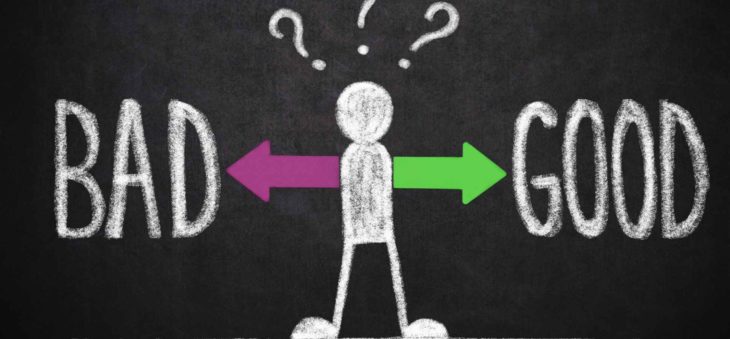James was the boyfriend who did everything right.
He asked me out first, and asked me out again the very next day. He didn’t play games. He called if he’d be late, if he missed me, just to say hello. He listened patiently. He dressed well. He told me I was beautiful whether I was opera-ready in a ballgown or sweaty from a day-long hike. He’d plan lavish marathon dates with rooftop picnics or bonfires on the beach. He was tall, athletic, and good-looking. He held the door for women, and not just the attractive ones. He loved me.
My friends approved. My brother hung out with him. My parents loved him. James, it seemed, was good enough for everyone.
But no one was good enough for James.
There’s moral, and then there’s moralizing, and James was definitely the latter. He saw himself as a bastion of virtue and the rest of humanity as struggling to catch up. Not me, mind you. For whatever reason—probably the stars in his eyes—I’d managed to clear some bar of righteousness. “You’re not like the rest of them,” he’d croon, his enormous eyes gazing adoringly into mine. “You’re a good soul. The rest of them can’t compare to you.”
While James was plenty of fun, in the bedroom and out of it—no lingering Catholic guilt in this boy—he was a bit more difficult to manage in social situations. Like anything with alcohol. Wine was permitted; shots were not. Civilized dancing was permitted; grinding on the club floor was not. He’d walk into a bar with me and sigh, shaking his head mournfully. “Look at these fine young minds,” he’d say, looking around at my school friends, “wasting the best days of their lives.” They’re having a good time, I wanted to scream. But I held my tongue—not wanting to incur his fire and brimstone upon myself.

Source: inc
James didn’t think himself better than me, he always made sure to say. “You’re like me,” it would be. “You want to be a good person.” Well, yes. But these comments usually came while we were out, and usually through disparaging other girls—the ones in short skirts or knocking back Cuervo. When I was with him, I was in Relationship Mode, not heating up the dance floor myself. But what, exactly, did he think I was before he came along?
James’ judgment grew exhausting, even second-hand. He saw the two of us as like-minded souls, exempt from the depraved impulses of lesser mortals and fighting through a world populated by them. And that just wasn’t the world I lived in.
High moral standards are a good thing; don’t get me wrong. I appreciate people with manners and honesty and values, whether I’m dating them or not. But I also tend to live and let live. Things are complicated enough without weighing in on everyone else’s righteousness. Or lack thereof.
So, after a few months, I decided to live and let James live—without me. I’m not sure whether initiating the breakup fell in morally sanctioned territory. At that point, though, I was done with his holier-than-thou values. My own set was good enough for me.
Original by: Lindsay Allen
